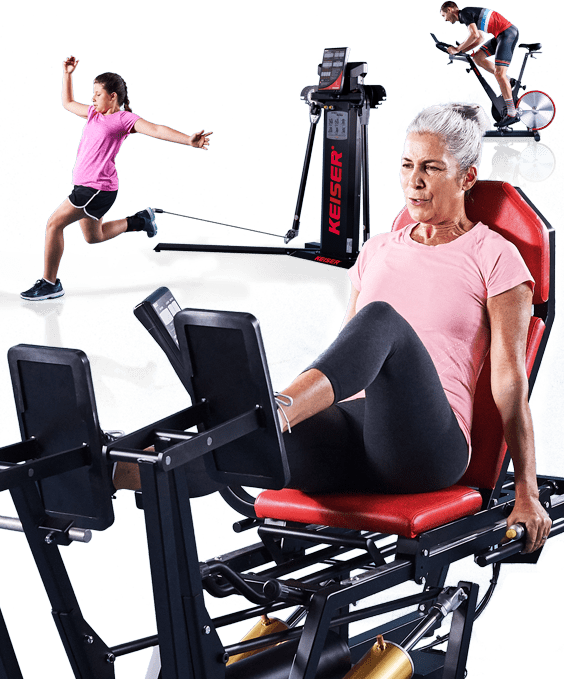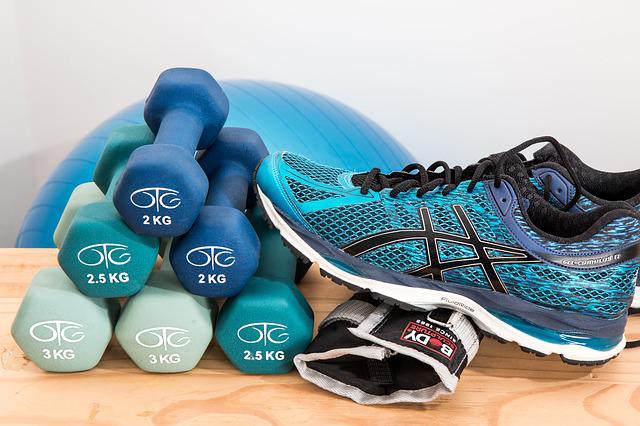
If you'd like to pursue a career in health and fitness, a bachelors in exercise science can help you do just that. The degree will allow you to learn about the benefits of nutrition and exercise and how to make it safe and effective for people with particular health conditions. Students in exercise science also learn about the science behind selecting the best foods, fluids and supplements to fuel their bodies, and achieve positive results.
Prerequisites
If you are considering a career in health care, you should know that there are several prerequisites for a bachelor's degree in exercise science. This degree will give you the academic foundation you need to work in any health care field. Some of these careers include physical therapy, athletic training, and occupational therapy. The U.S. Bureau of Labor Statistics projects that 2.4 million jobs will be created in the healthcare industry by 2029. This growth trend is expected to continue and will continue to demand qualified exercise science graduates.
The Bachelor's Degree in Exercise Science opens many doors to career opportunities. Graduates may pursue careers in health and fitness training, sports nutrition, fitness program management, and exercise physiology. They may also work in hospitals, schools, or community centers. The bachelor's degree in exercise sciences can be used to become chiropractors, occupational therapy, and physical therapy.

Career prospects
The fitness and health industry offers many rewarding career opportunities for bachelors in exercise science. The growing awareness of health and wellness is one of the leading trends driving the growth of the fitness industry. The fitness industry has generated more than $94 Billion in revenue in 2018. People who are knowledgeable about exercise and how to use them can reap the rewards of this growth. A bachelor's in exercise science is a great way to pursue certification or further education in this field.
Exercise science is all about the study and analysis of physical activity as well as the effects of stress on the human body. This field can help prevent or slow down the development of fitness and health diseases. It can also improve performance and help people maintain their best fitness levels. You can study exercise science in kinesiology or biomechanics as well as nutrition and health science. Students in exercise science programs also take courses in chemistry, biology, and anatomy.
Online programs
An online program could lead you to a Bachelor's Degree in Exercise Science, depending on your goals. Most programs require 120 credits. They can be completed in four years. Depending on the program, you can take asynchronous classes or opt for an accelerated program. The future is bright for many jobs in exercise science, with 13% growth for exercise physiologists and 39% growth for fitness trainers and instructors.
A degree in exercise science may not be as expensive as you think, especially when you consider the rising cost of higher education. To help you save money, there are often scholarships, grants, or assistantships available. Even if your financial aid is not available, you may be eligible to apply for student loan funds to pay for the remainder of your degree. There are many grant types, from those offered by colleges to professional associations to government. Grants don't have to be repaid, and can be a great way of financing your education. Learn more about grants and scholarships in our guide to online programs.

Cost
Earning a bachelor's degree in exercise science is a great choice for a career in the health and fitness industry. You can also earn this degree online. However, it is better to go to a campus nearby for lectures and other requirements. For students who are located near the campus, many programs offer internship opportunities. It is important to select an accredited school. This ensures that the institution's academic quality and rigor are high. Additionally, unaccredited schools may prevent you receiving financial aid or transferring your credits.
The University of Kansas' Bachelor of Applied Science in Exercise Science program is an online program for fitness professionals. Coursework focuses primarily on human movement. This program is an excellent choice for pre-health and pre-med students looking to enter the fitness industry. The program's experienced faculty teaches the students through a hands-on approach. Candidates must pay a $55 application fees and meet the admission requirements.
FAQ
Can I eat during my exercise?
Yes. Yes. Make sure you choose low-calorie snacks such as watermelon, carrots, celery, apples, bananas, and grapes. These foods have nutrients that can help you perform better in your workouts.
Is it safe and legal to exercise in cold conditions?
Outside exercise is encouraged whenever possible. You can exercise outside regardless of the weather. Also, visibility, wind speed and humidity all play a significant role. Layers of clothing will protect you from rain and wind chill if you exercise outdoors in inclement climates.
What happens to me if I don’t sleep enough?
Lack of sleep means that your brain does not receive enough signals to regulate hormones. In turn, this can cause you to eat more and gain weight. Sleep deprivation can also lead to excessive weight gain.
Do I need to drink alcohol while working out?
Alcohol has calories, so it's not recommended to consume large amounts while working out. The moderate intake of alcohol (one a day) may improve endurance for workouts. It may also reduce fatigue from exercise and muscle aches.
Do I need a warm-up before I go?
Warming up before an activity can reduce muscle soreness, improve performance, and help to prevent injury. There are several ways to warm up. These include running, jumping ropes stretching, running and even cycling. You can start slowly and increase your intensity gradually.
Statistics
- According to the Centers for Disease Control and Prevention, chronic diseases cause 7 out of 10 deaths in the U.S., and treating chronic diseases accounts for 86% of U.S. healthcare costs. (mana.md)
- One study showed that adults who watch more than 4 hours of television daily had an 80% higher risk of death from cardiovascular disease. (heart.org)
- An estimated 110,000 deaths per year could be prevented (cdc.gov)
- In 2018, the World Health Assembly agreed on a global target to reduce physical inactivity by 15% by 2030 and align with the Sustainable Development Goals. (who.int)
External Links
How To
How to Lose Belly Fats More Fast
Belly Fat is usually seen as a problem when we want to lose weight. If you look at it, belly fat is actually a positive thing. Your organs are protected by the fat around your stomach. Let's find out how to lose belly fat quickly.
Lack of exercise and stress are the main reasons we store body fat. The cortisol hormone stimulates stress which makes us hungry. Cortisol increases insulin levels in our blood. The excess calories are stored as fat by insulin. An increased appetite can be caused by a lack of sleep. These extra calories can also be reduced by exercise
There are many different ways to reduce bellyfat. Depending on your budget, you can try each one. These are some ways to quickly lose belly fat.
-
Try to eat less food. Instead of eating three large meals per day, try to eat smaller meals. This way, you'll consume fewer calories overall.
-
Get plenty of water. Water helps flush out toxins from the body and keeps you hydrated. Also, drinking water before every meal will keep you feeling full longer so you won't overeat.
-
Avoid eating unhealthy snacks. If you're looking for quick fixes, snack foods like chips, cookies, candies, etc. might seem tempting. But avoid these fattening treats as they contain lots of empty calories and too much sugar. Instead, choose healthy alternatives like fruits, veggies, nuts, seeds, and whole grains.
-
Strength training should be performed at least 3 times per week. Strength training helps build muscle mass, which means that you can burn more calories even when you are resting. It also strengthens bones, muscles, ligaments, tendons, the heart, lungs, and joints.
-
Regularly walk or stretch. Stretching helps to improve flexibility and mobility, which reduces back pain. Walking is a great way of burning calories, especially when you do it for just 30 minutes.
-
Reduce alcohol intake. Avoid alcohol.
-
You can lose weight slowly. Finding out your current weight is the first step in losing weight. Then calculate your ideal weight by adding 5% to 10% of your total body weight. Once you have established your ideal weight, reduce your daily calorie intake by 500 to 1000 calories each day until you achieve your goal.
-
Avoid processed foods. These foods contain high levels of sugar, salt, and preservatives. Although they are convenient, processed foods don't have enough nutrients to sustain your health.
-
Don't skip breakfast! Eating breakfast improves concentration, memory, and energy level. Breakfast should contain protein (like eggs), fibre (like oats), as well as complex carbohydrates (like oatmeal).
-
Have regular bowel movements. Bloating and gas can be caused by irregular bowel movements and constipation. Increase your fiber intake and drink lots of water.